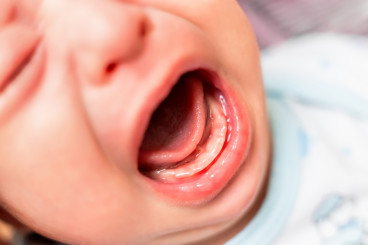Clenching
Clenching: Causes, Effects, and Dental Treatment
Clenching, a common dental condition, refers to the involuntary and habitual grinding or pressing together of the upper and lower teeth. This behavior, which often occurs during sleep or periods of stress, can have significant implications for one's oral health and overall well-being.
Causes of Clenching
The primary causes of clenching can be multifaceted, stemming from a combination of physiological, psychological, and environmental factors. Stress and anxiety are often cited as primary triggers, as the body's natural stress response can manifest in physical behaviors such as clenching. Additionally, certain sleep disorders, including sleep apnea, have been linked to increased instances of clenching during the night. Occlusal (bite) issues, such as misaligned or uneven teeth, can also contribute to the development of clenching habits.
Effects of Clenching
Clenching can have a wide range of negative effects on the teeth, jaw, and surrounding structures. One of the most common consequences is excessive wear and tear on the tooth enamel, leading to an increased risk of cavities, chipped or cracked teeth, and even tooth loss. The intense pressure exerted on the teeth during clenching can also cause inflammation and pain in the temporomandibular joint (TMJ), the hinge that connects the jawbone to the skull. This can result in a condition known as temporomandibular disorder (TMD), which can manifest as headaches, jaw pain, and difficulty opening the mouth.
In addition to the direct dental effects, clenching can also have broader health implications. The constant muscle tension associated with clenching can lead to neck and shoulder pain, as well as contribute to the development of sleep disorders and other stress-related issues.
Dental Treatment for Clenching
Fortunately, there are several effective dental treatments available to address the issue of clenching. The primary goal of these treatments is to reduce the harmful effects of clenching and prevent further damage to the teeth and jaw.
One common treatment option is the use of a custom-made dental nightguard, also known as an occlusal splint or bite guard. These devices are designed to be worn over the teeth, typically during sleep, to create a physical barrier between the upper and lower teeth. This helps to distribute the pressure of clenching more evenly, reducing the strain on the teeth and jaw. Nightguards can be made from a variety of materials, including hard acrylic or soft, flexible plastics, and are custom-fitted to the individual's mouth for maximum comfort and effectiveness.
In addition to nightguards, dental professionals may also recommend other treatments, such as:
Stress management techniques: Incorporating relaxation methods, such as meditation, yoga, or counseling, can help to address the underlying psychological factors that contribute to clenching.
Bite adjustment or orthodontic treatment: In cases where the clenching is related to misaligned or uneven teeth, dental procedures such as bite adjustment or orthodontic treatment may be recommended to correct the underlying occlusal issues.
Botox injections: In some cases, targeted Botox injections into the muscles responsible for clenching can temporarily paralyze the muscles, reducing the intensity and frequency of the clenching behavior.
Physical therapy: Exercises and techniques focused on the jaw, neck, and shoulder muscles can help to alleviate the physical symptoms associated with clenching, such as pain and muscle tension.
Conclusion
It is important to note that the specific treatment plan will depend on the individual's unique circumstances and the severity of the clenching behavior. A comprehensive dental evaluation and personalized treatment approach are crucial for effectively managing clenching and preventing long-term oral and overall health complications.
If you're experiencing the effects of clenching,



